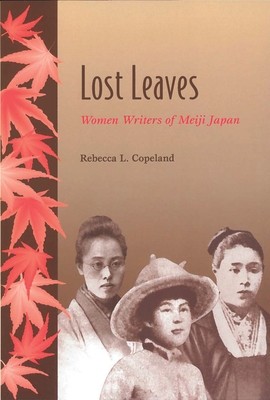
- We will send in 10–14 business days.
- Author: Rebecca L Copeland
- Publisher: University of Hawaii Press
- ISBN-10: 0824822919
- ISBN-13: 9780824822910
- Format: 14.7 x 22.4 x 2 cm, minkšti viršeliai
- Language: English
- SAVE -10% with code: EXTRA
Reviews
Description
Most Japanese literary historians have suggested that the Meiji Period (1868-1912) was devoid of women writers but for the brilliant exception of Higuchi Ichiyo (1872-1896). Rebecca Copeland challenges this claim by examining in detail the lives and literary careers of three of Ichiyo's peers, each representative of the diversity and ingenuity of the period: Miyake Kaho (1868-1944), Wakamatsu Shizuko (1864-1896), and Shimizu Shikin (1868-1933).
In a carefully researched introduction, Copeland establishes the context for the development of female literary expression. She follows this with chapters on each of the women under consideration. Miyake Kaho, often regarded as the first woman writer of modern Japan, offers readers a vision of the female vitality that is often overlooked when discussing the Meiji era. Wakamatsu Shizuko, the most prominent female translator of her time, had a direct impact on the development of a modern written language for Japanese prose fiction. Shimizu Shikin reminds readers of the struggle women endured in their efforts to balance their creative interests with their social roles. Interspersed throughout are excerpts from works under discussion, most never before translated, offering an invaluable window into this forgotten world of women's writing.EXTRA 10 % discount with code: EXTRA
The promotion ends in 23d.06:24:59
The discount code is valid when purchasing from 10 €. Discounts do not stack.
- Author: Rebecca L Copeland
- Publisher: University of Hawaii Press
- ISBN-10: 0824822919
- ISBN-13: 9780824822910
- Format: 14.7 x 22.4 x 2 cm, minkšti viršeliai
- Language: English English
Most Japanese literary historians have suggested that the Meiji Period (1868-1912) was devoid of women writers but for the brilliant exception of Higuchi Ichiyo (1872-1896). Rebecca Copeland challenges this claim by examining in detail the lives and literary careers of three of Ichiyo's peers, each representative of the diversity and ingenuity of the period: Miyake Kaho (1868-1944), Wakamatsu Shizuko (1864-1896), and Shimizu Shikin (1868-1933).
In a carefully researched introduction, Copeland establishes the context for the development of female literary expression. She follows this with chapters on each of the women under consideration. Miyake Kaho, often regarded as the first woman writer of modern Japan, offers readers a vision of the female vitality that is often overlooked when discussing the Meiji era. Wakamatsu Shizuko, the most prominent female translator of her time, had a direct impact on the development of a modern written language for Japanese prose fiction. Shimizu Shikin reminds readers of the struggle women endured in their efforts to balance their creative interests with their social roles. Interspersed throughout are excerpts from works under discussion, most never before translated, offering an invaluable window into this forgotten world of women's writing.

Reviews